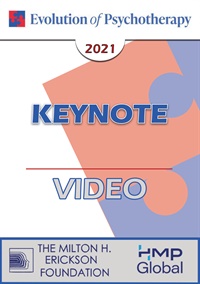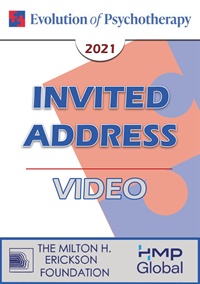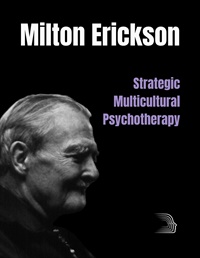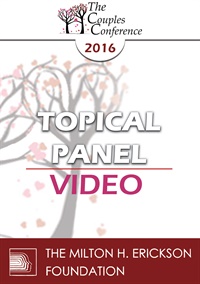- Average Rating:
- Not yet rated
- Topic Areas:
- Keynotes | Multicultural
- Categories:
- Evolution of Psychotherapy | Evolution of Psychotherapy 2021
- Faculty:
- Derald Wing Sue, PhD
- Course Levels:
- Master Degree or Higher in Health-Related Field
- Duration:
- 1 hour
- Format:
- Audio and Video
- Original Program Date:
- Dec 04, 2021
- Short Description:
- "Sometime between the years 2030 and 2050 Black, Indigenous and People of Color (BIPOC) will become a numerical majority in society. It will become increasingly difficult for mental health professionals, and educators not to encounter clients and students who differ from them in terms of race, ethnicity and culture. Difficult dialogues on race and other sociodemographic identities (gender, sexual orientation or identity) have often served to polarize and obstruct mutual understanding rather than to clarify and increase mutual understanding. Most well intentioned people (mental health providers, educators and others) find themselves ill prepared to deal with the often-explosive race or gender related emotions that manifest themselves in interpersonal interactions and in employment and other public spaces.
- Price:
- $59.00 - Base Price
Tags: Multi-Cultural
- Average Rating:
- Not yet rated
- Topic Areas:
- Invited Addresses | Multicultural | Pain and Healing
- Categories:
- Evolution of Psychotherapy | Evolution of Psychotherapy 2021
- Faculty:
- Helen Neville
- Course Levels:
- Master Degree or Higher in Health-Related Field
- Duration:
- 1 hour
- Format:
- Audio and Video
- Original Program Date:
- Dec 03, 2021
- Short Description:
- In this presentation, Dr. Helen Neville will present the Psychology of Radical Healing framework. The heuristic is designed to describe the ways in which Black, Indigenous, and People of Color engage in individual and collective healing from identity based wounds. She will focus her discussion on the dimension of radical hope. After highlighting research findings, she will describe current interventions that promote specific aspects of radical healing. Specific practice recommendations will be offered.
- Price:
- $59.00 - Base Price
Tags: Multi-Cultural Pain & Healing
- Average Rating:
- Not yet rated
- Topic Areas:
- Milton Erickson | Multicultural | Psychotherapy | Ericksonian Hypnosis and Therapy Techniques | Utilization | Hypnosis | Strategic Therapy
- Categories:
- Erickson Streaming Video Collection | Erickson Materials | Milton H. Erickson Collections
- Faculty:
- Jeffrey Zeig, PhD | Milton H. Erickson, MD
- Course Levels:
- Master Degree or Higher in Health-Related Field
- Duration:
- 59 Minutes
- Format:
- Audio and Video
- Original Program Date:
- Aug 13, 2020
- Short Description:
- Milton Erickson often advised psychotherapy students to study anthropology so that therapy could be provided from the perspective of the cultural background of the client. In the video, Erickson uses his understanding of cultural orientation when working with an adolescent where the presenting problem is a speech defect. This is a highly informative case of using strategic and systemic processes that can be applied to other presenting problems.
- Price:
- $19.95 - Base Price
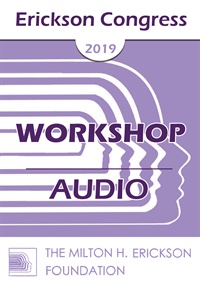
- Average Rating:
- Not yet rated
- Topic Areas:
- Workshops | Multicultural | Strategic Therapy | Strengths-Based
- Categories:
- Erickson Congress | Erickson Congress 2019
- Faculty:
- Terry Soo-Hoo, PhD
- Duration:
- 2 Hours 3 Minutes
- Format:
- Audio Only
- Original Program Date:
- Dec 15, 2019
- Short Description:
- Much of this Workshop will address issues of culture, race, sexual orientation, diversity and social justice and equality, etc. A major premise is the idea that all therapy is multicultural therapy. This means that every client brings to therapy a unique world and therefore the challenge for every therapy is for the therapist to be able to enter the unique world of each client. This therapy method is especially adept at working with cultural differences as it is highly adaptable and therefore able to work within the unique world of the client.
- Price:
- $15.00 - Base Price
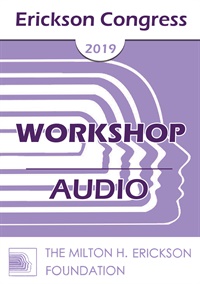
- Average Rating:
- Not yet rated
- Topic Areas:
- Workshops | LGBTQ | Multicultural | Strengths-Based | Ericksonian Hypnosis and Therapy Techniques
- Categories:
- Erickson Congress | Erickson Congress 2019
- Faculty:
- Rick Miller, MSW
- Duration:
- 1 Hour 51 Minutes
- Format:
- Audio Only
- Original Program Date:
- Dec 15, 2019
- Short Description:
- The emotional mystique between gay sons and their mothers has long been unexplored, but now new evidence suggests that a mother’s response to her son’s sexuality isn’t the only factor in his future success. How she nurtures him based on his interests, rather than his sexual preferences, is key, especially in a society with narrow definitions of masculinity.
- Price:
- $15.00 - Base Price
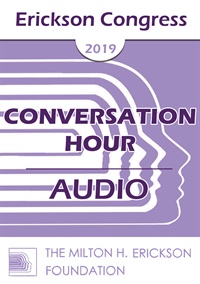
- Average Rating:
- Not yet rated
- Topic Areas:
- Conversation Hours | Meditation, Spirituality and Yoga | Multicultural | Religion
- Categories:
- Erickson Congress | Erickson Congress 2019
- Faculty:
- Tamer Dovucu, MA
- Duration:
- 57 Minutes
- Format:
- Audio Only
- Original Program Date:
- Dec 14, 2019
- Short Description:
- In Turkey I had the opportunity to research the resources about Sufism (for example Rumi is the most well known sufi in the world and he lived in Turkey) and I studied it both as a student and as a therapist about 15 years. Sufism has actually two big steps. Understanding yourself and life first by mind than by heart. While I was creating the Optimum Balance Model (OBM) I think I did the first part. During this conversation I'll try to explain steps of the inner journey of a Sufi, I'll share my experiences and the story of how they try to tame their Ego.
- Price:
- $15.00 - Base Price
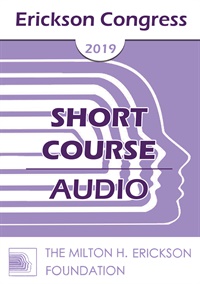
- Average Rating:
- Not yet rated
- Topic Areas:
- Short Courses | Pain and Healing | Sex and Sexuality | Multicultural | Psychotherapy
- Categories:
- Erickson Congress | Erickson Congress 2019
- Faculty:
- Mitra Rashidian, PhD | Robert Jaffe, PhD, LMFT
- Duration:
- 1 Hour 27 Minutes
- Format:
- Audio Only
- Original Program Date:
- Dec 12, 2019
- Short Description:
- According to research (Rashidian et al. 2015), Genito-Pelvic Pain/Penetration Disorder ‘Vaginismus’, causes significant sexual challenges for groups of sub-population women in the US. This workshop provides raw data and statistical analysis, supporting the hypothesis that these women experienced sexual pain as a manifestation of biopsychosocial conditions, resulting from cultural orientations. These include the cultural do’s and don’ts that shapes sub-population women’s sexual beliefs and attitudes, as a result of their life experiences within their cultures, impacting emotional and physical sexual experiences negatively.
- Price:
- $15.00 - Base Price
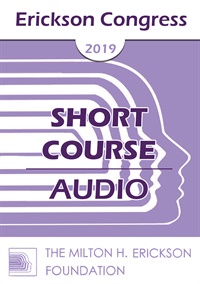
- Average Rating:
- Not yet rated
- Topic Areas:
- Short Courses | Multicultural | Religion | Community
- Categories:
- Erickson Congress | Erickson Congress 2019
- Faculty:
- Joanne Ginter, MA
- Duration:
- 1 Hour 6 Minutes
- Format:
- Audio Only
- Original Program Date:
- Dec 12, 2019
- Short Description:
- This workshop emphasizes ways culture and religion can be integrated into the therapeutic discourse through the promotion of intercultural resiliency. Interculturalism allows for relationship building and learning from each other while taking the therapist deeper than multicultural or cross-cultural communication. Resiliency as a healing process allows for creating new meanings to unfortunate life events based on developing the self through mentorship and community, the building blocks of resiliency.
- Price:
- $15.00 - Base Price
Tags: Community Multi-Cultural Religion
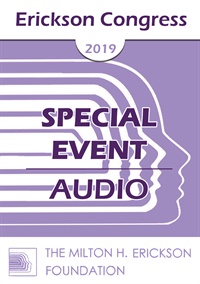
- Average Rating:
- Not yet rated
- Topic Areas:
- Hypnosis | Self-Hypnosis | Multicultural | Therapist Development
- Categories:
- Erickson Congress | Erickson Congress 2019
- Faculty:
- Roxanna Erickson Klein, RN, PhD, LPC, LCDC | Alejandra Diaz, LPC
- Duration:
- 4 Hours 7 Minutes
- Format:
- Audio Only
- Original Program Date:
- Dec 11, 2019
- Short Description:
- This event is designed to educate professionals about the power of self- hypnosis. The workshop offers an experiential approach that is brought together by comparing and contrasting the learning backgrounds from the two co-presenters. Each bringing different life experiences, cultural elements are identified and utilized to facilitate participants’ individual creation of their own learning pathway.
- Price:
- $15.00 - Base Price
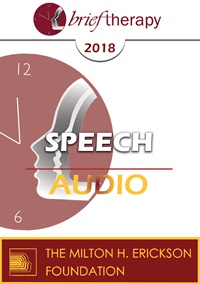
- Average Rating:
- Not yet rated
- Topic Areas:
- Speeches | Multicultural | Strategic Therapy | Brief Therapy | Strengths-Based
- Categories:
- Brief Therapy Conference | Brief Therapy Conference 2018
- Faculty:
- Terry Soo-Hoo, PhD
- Duration:
- 1:42:11
- Format:
- Audio Only
- Original Program Date:
- Dec 09, 2018
- Short Description:
- The Culturally Sensitive Strength-Based Strategic Therapy method was developed to integrate various principles founded by the Mental Research Institute (MRI) and Jay Haley’s Strategic Therapy approach as well as other methods to address these issues. In this workshop, guidelines will be presented for learning the principles of Culturally Sensitive Strength-Based Strategic Therapy. There will be an emphasis on effective strategies in working within the cultural context of the client and how this is critical to successful therapy. A structure will be presented for organizing the specific tasks and skills involved in different aspects of the method including activating the client’s strengths. Case examples, some on video recordings, will illustrate many innovative brief therapy techniques.
- Price:
- $15.00 - Base Price
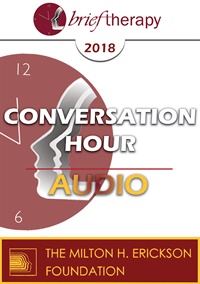
- Average Rating:
- Not yet rated
- Topic Areas:
- Great Conversations | Multicultural | Brief Therapy | Treatment Planning
- Categories:
- Brief Therapy Conference | Brief Therapy Conference 2018
- Faculty:
- Laura Brown, PhD | Elliott Connie, MA, LPC
- Duration:
- 1:05:53
- Format:
- Audio Only
- Original Program Date:
- Dec 08, 2018
- Short Description:
- Contemporary therapist need to understand culturally competent practice. Principles of assessment and treatment will be offered.
- Price:
- $15.00 - Base Price
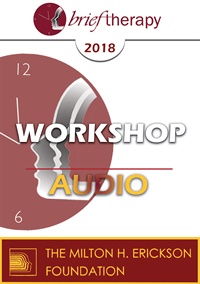
- Average Rating:
- Not yet rated
- Topic Areas:
- Workshops | Brief Therapy | LGBTQ | Multicultural | Trauma
- Categories:
- Brief Therapy Conference | Brief Therapy Conference 2018
- Faculty:
- Rick Miller, MSW
- Duration:
- 1:46:52
- Format:
- Audio Only
- Original Program Date:
- Dec 07, 2018
- Short Description:
- The relationship between gay sons and their mothers is fascinating based on the history of psychiatry pathologizing this bond, suggesting an enmeshment that contributed to the son being gay. Currently, this relationship consists of an empowering bond that contributes to a healthy sense of self in a world where acceptance isn’t necessarily prevalent. The actual key to wellbeing consists of receiving good enough mothering rather than total acceptance of his being gay. This presenter, a gay male author notes that there is little information on this topic, hence the inception Gay Sons and Mothers. This “docuseries” consists of photos and narratives depicting these bonds, video interviews portraying the emotional aspects of their relationships, as well as theory based on interviews and personal experiences.
- Price:
- $15.00 - Base Price
Tags: Gay LGBTQ Multi-Cultural Trauma
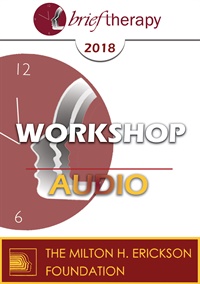
- Average Rating:
- Not yet rated
- Topic Areas:
- Workshops | Multicultural | Trauma | Brief Therapy | Mindfulness
- Categories:
- Brief Therapy Conference | Brief Therapy Conference 2018
- Faculty:
- Laura Brown, PhD
- Duration:
- 1:59:58
- Format:
- Audio Only
- Original Program Date:
- Dec 07, 2018
- Short Description:
- Just as human beings are not generic, so, too, trauma is an event that is affected by and interacts with people's intersectional identities. This workshop will introduce participants to a mindful model for understanding how to move towards cultural competence in practice with trauma survivors. We will pay particular attention to therapist countertransference/fragility, and to the effects of shame, guilt, privilege, and dominant culture narratives on trauma treatment. Some experience working with trauma survivors is assumed.
- Price:
- $15.00 - Base Price
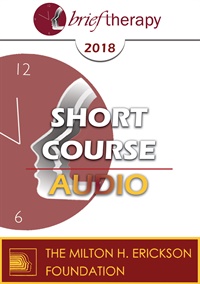
- Average Rating:
- Not yet rated
- Topic Areas:
- Short Courses | Communication | Multicultural | Sex and Sexuality | Brief Therapy
- Categories:
- Brief Therapy Conference | Brief Therapy Conference 2018
- Faculty:
- Mitra Rashidian, PhD
- Duration:
- 1:30:26
- Format:
- Audio Only
- Original Program Date:
- Dec 06, 2018
- Short Description:
- In this workshop, clinicians’ level of comfort, barriers, and attitudes when talking about sexuality will be highlighted, along with useful strategies to provide better engagement with their clients. Additional strategies used to build upon a person’s individual strengths to assist them in overcoming cultural and personal sexual imprints are offered.
- Price:
- $15.00 - Base Price
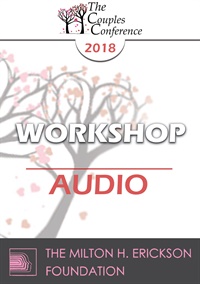
- Average Rating:
- Not yet rated
- Topic Areas:
- Workshops | Multicultural | Couples Therapy | Relationships | Polyamory
- Categories:
- Couples Conference | Couples Conference 2018
- Faculty:
- Martha Kauppi, MS MFT
- Duration:
- 1:51:58
- Format:
- Audio Only
- Original Program Date:
- May 05, 2018
- Short Description:
- Are you ready to hear your favorite long-term couple client tell you they are fighting because one of them is interested in exploring polyamory and the other is not? Would you choose to work with a couple who told you on the phone they live and love with 2 other people and some tensions are arising? Many people are exploring consensually non-monogamous relationships, and as a result, related issues are showing up in therapy rooms everywhere. This workshop will debunk myths, distinguish between n
- Price:
- $15.00 - Base Price
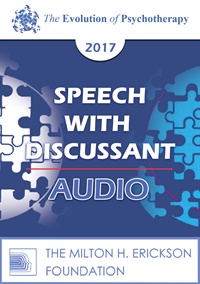
- Average Rating:
- Not yet rated
- Topic Areas:
- Speeches with Discussants | Couples Therapy | Relationships | Experiential Therapy | IMAGO
- Categories:
- Evolution of Psychotherapy | Evolution of Psychotherapy 2017 | Pioneers in Couples and Family Therapy
- Faculty:
- Harville Hendrix, PhD | Helen LaKelly Hunt, PhD | Harriet Lerner, PhD
- Duration:
- 1:33:34
- Format:
- Audio Only
- Original Program Date:
- Dec 16, 2017
- Short Description:
- This lecture features Imago Relationship Therapy, emphasizing a shift from individualism to a relational model grounded in connection. The Imago Dialog process uses structured conversations to promote safety, empathy, and zero negativity. Key elements include daily affirmations, relational competency, and the “space between” partners. The session also addresses trauma and the importance of making these tools accessible across cultures.
- Price:
- $15.00 - Base Price
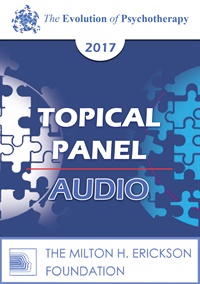
- Average Rating:
- Not yet rated
- Topic Areas:
- Topical Panels | Multicultural | Psychotherapy | Therapist Development
- Categories:
- Evolution of Psychotherapy | Evolution of Psychotherapy 2017
- Faculty:
- Esther Perel, MA, LMFT | Derald Wing Sue, PhD | Robert Dilts, BA
- Duration:
- 1:01:59
- Format:
- Audio Only
- Original Program Date:
- Dec 15, 2017
- Short Description:
- All therapists require an understanding of multicultural issues to be effective. Theoretical research findings will be discussed.
- Price:
- $15.00 - Base Price
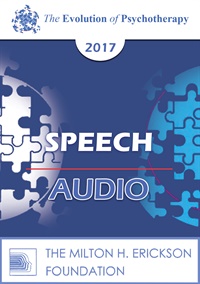
- Average Rating:
- Not yet rated
- Topic Areas:
- Speeches | Multicultural | Gender | LGBTQ | Psychotherapy
- Categories:
- Evolution of Psychotherapy | Evolution of Psychotherapy 2017
- Faculty:
- Derald Wing Sue, PhD
- Course Levels:
- Master Degree or Higher in Health-Related Field
- Duration:
- 55:44
- Format:
- Audio Only
- Original Program Date:
- Dec 15, 2017
- Short Description:
- Racial, gender, and LGBTQ micro aggressions are brief and commonplace daily verbal, behavioral or environmental indignities which communicate hostile, derogatory, or negative slights to targets. They are often reflections of implicit bias that are outside the level of conscious awareness of well-intentioned individuals. Nevertheless, they have been found to cause lowered subjective well-being in the lives of marginalized group members and may lead to mental health problems. Research indicates that clinicians and supervisors are often perpetrators of micro aggressions.
- Price:
- $15.00 - Base Price
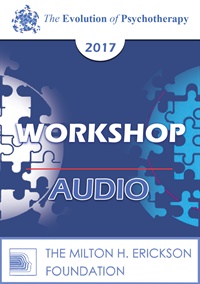
- Average Rating:
- Not yet rated
- Topic Areas:
- Workshops | Multicultural | Psychotherapy | Storytelling
- Categories:
- Evolution of Psychotherapy | Evolution of Psychotherapy 2017
- Faculty:
- Jean Houston, PhD
- Duration:
- 2:51:28
- Format:
- Audio Only
- Original Program Date:
- Dec 13, 2017
- Short Description:
- Mythic structures illumine and fortify personal and cultural change. In using the significant myths that inform cultures and persons, there are potent means developed by Dr. Houston of applying mythic and symbolic material towards the shifting needs and challenges of our time. Houston will explore and demonstrate some of these.
- Price:
- $15.00 - Base Price
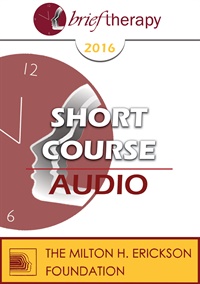
BT16 Short Course 32 - From East to West: Utilizing Consciousness and Strengths - John Lentz, D. MIN
- Average Rating:
- Not yet rated
- Topic Areas:
- Consciousness | Short Courses | Multicultural | Utilization
- Categories:
- Brief Therapy Conference | Brief Therapy Conference 2016
- Faculty:
- John Lentz, D. Min.
- Duration:
- 1:12:38
- Format:
- Audio Only
- Original Program Date:
- Dec 08, 2016
- Short Description:
- Working in collaboration with our clients to create solutions is one of the new directions that effectiveness based approaches advocate. The workshop leaders who live in Iran and United States respectively will be demonstrating these techniques. By utilizing culturally oriented assets, attendees will be offered a unique approach that can help empower people.
- Price:
- $15.00 - Base Price
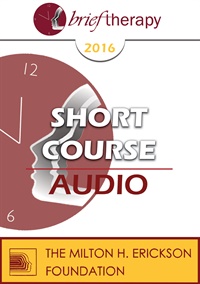
- Average Rating:
- Not yet rated
- Topic Areas:
- Short Courses | Brief Therapy | Community | Multicultural | Therapist Development
- Categories:
- Brief Therapy Conference | Brief Therapy Conference 2016
- Faculty:
- Karin Schlanger, MFT | Gloria Diaz Arnal, MFT Intern
- Duration:
- 1:11:09
- Format:
- Audio Only
- Original Program Date:
- Dec 08, 2016
- Short Description:
- Palo Alto Brief Therapy model applied in an educational context. Focus on advantages of using this approach when the context is a challenge in itself. The presenters – Ms. Schlanger is the heir to the MRI-Brief Therapy model, will bring examples illustrating a useful model when working with a diverse community.
- Price:
- $15.00 - Base Price
- Average Rating:
- Not yet rated
- Topic Areas:
- Topical Panels | Differentiation | Couples Therapy
- Categories:
- Couples Conference | Couples Conference 2016 | Pioneers in Couples and Family Therapy
- Faculty:
- Ellyn Bader, PhD | Esther Perel, MA, LMFT | Terry Real, LICSW
- Course Levels:
- Master Degree or Higher in Health-Related Field
- Duration:
- 01:07:58
- Format:
- Audio and Video
- Original Program Date:
- May 14, 2016
- Short Description:
- This panel examines the nuanced role of differentiation in couples therapy. Speakers address the ambivalence partners often feel toward change, the need for resilience, and the importance of setting clear boundaries. Topics include "fierce intimacy," therapist dedication, substance abuse, and the delicate balance between attachment and individuality. The discussion offers practical insights into fostering growth while navigating emotional tension in relationships.
- Price:
-
Sale is $29.00
price reduced from Base Price - $59.00
- Average Rating:
- Not yet rated
- Topic Areas:
- Topical Panels | Multicultural | Psychotherapy
- Categories:
- Evolution of Psychotherapy | Evolution of Psychotherapy 2013
- Faculty:
- Robert Dilts, BA | Derald Wing Sue, PhD | Bessel van der Kolk, MD
- Course Levels:
- Master Degree or Higher in Health-Related Field
- Duration:
- 57:48
- Format:
- Audio and Video
- Original Program Date:
- Dec 14, 2013
- Short Description:
- EP13 Topical Panel 13 - Multicultural Issues - Robert Dilts, Derald Wing Sue, PhD, and Bessel van der Kolk, MD Moderator: Annellen Simpkins, PhD Education Objectives: Compare and contrast clinical and philosophical perspective of experts.
- Price:
-
Sale is $29.00
price reduced from Base Price - $59.00
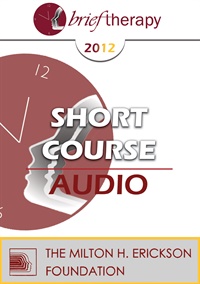
- Average Rating:
- Not yet rated
- Topic Areas:
- Short Courses | Communication | Multicultural
- Categories:
- Brief Therapy Conference | Brief Therapy Conference 2012
- Faculty:
- Sherri Reynolds
- Duration:
- 1:34:45
- Format:
- Audio Only
- Original Program Date:
- Dec 09, 2012
- Short Description:
- BT12 Short Course 41 – How Culture Impacts Communication – Sherri Reynolds, MA, MFT Participants will identify and analyze culture using 10 dimensions to break through communication barriers. Participants will learn to assess their own and their clients’ cultural styles of communication. Participants will also learn to apply specific techniques to facilitate more effective communication with clients, allowing them to establish lasting trust and develop a deeper relationship with clients from diverse cultures.
- Price:
- $15.00 - Base Price
Tags: Multi-Cultural
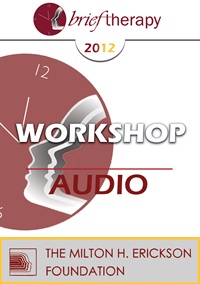
- Average Rating:
- Not yet rated
- Topic Areas:
- Trauma | Workshops | Multicultural
- Categories:
- Brief Therapy Conference | Brief Therapy Conference 2012
- Faculty:
- Kenneth Hardy, PhD
- Duration:
- 2:59:14
- Format:
- Audio Only
- Original Program Date:
- Dec 08, 2012
- Short Description:
- BT12 Workshop 23 – Understanding & Treating the Invisible Wounds of Socio-Cultural Trauma – Kenneth Hardy, PhD This workshop will provide a Socio-cultural view of trauma, highlighting the dynamics of the intersection of oppression and trauma. Strategies for effectively engaging and treating individuals and families with ‘oppression trauma’ will be discussed. Relevant Self of the Therapist issues will be explored.
- Price:
- $15.00 - Base Price
Tags: Multi-Cultural Trauma


